Set up Creatio application server on IIS
Setting up Creatio application server on IIS involves the following steps:
1.Set up application website in IIS.
Set up application website in IIS
To create and set up a website:
1.In the IIS control window, click the [Sites] folder and select the [Add Website] option from the context menu (Fig. 1).
Fig. 1 Creating a website for Creatio application
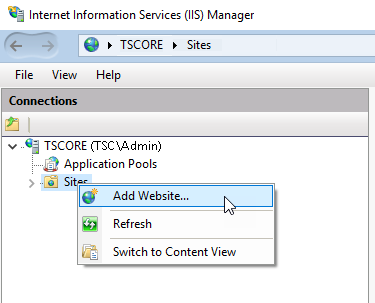
2.Specify the name of the website, the path to the root folder with Creatio files, IP address and website port (Fig. 2). The following path C:\Inetpub\wwwroot is used by default. If needed, specify your own IP address.
Fig. 2 New website parameters window
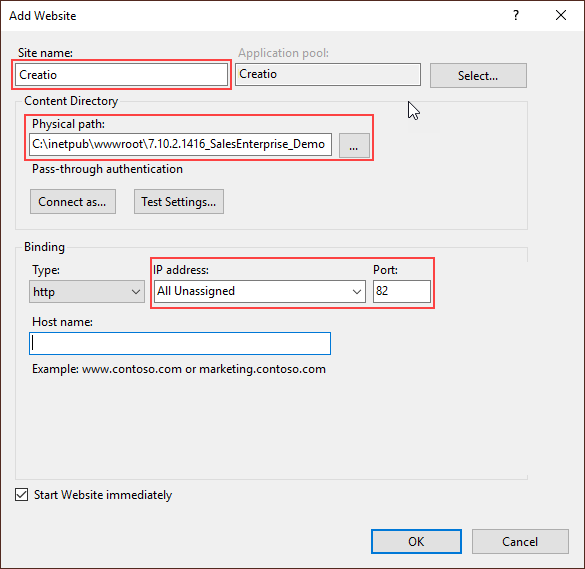
3.In the [Connections] field, click the created website and select the [Add Application] option in the menu (Fig. 3).
Fig. 3 Selecting IIS application adding command
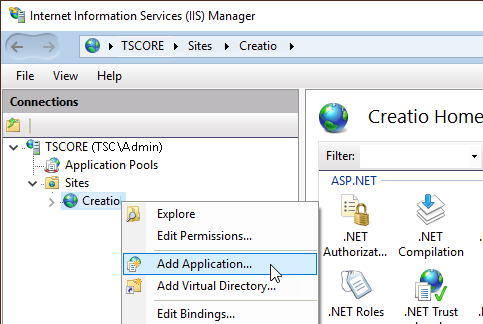
4.Specify the name of the application "0" in the [Alias] field. Specify the “Terrasoft.WEBApp” directory (Fig. 4).
Fig. 4 The application parameters selection window
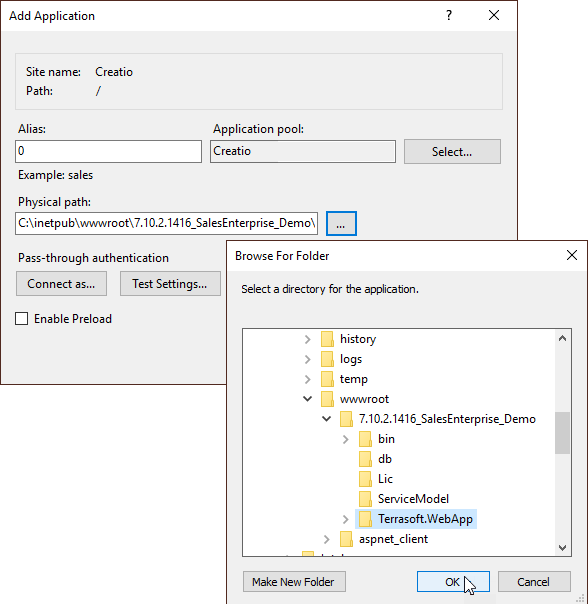
To add an application pool:
1.Go to the [Application Pools] section in the [Connections] area of the IIS control window.
2.Select the [Creatio] pool.
3.Select the [Integrated] mode in the [Managed pipeline mode] field.
4.Specify the Asp.Net - 4.0.30319 version in the [.Net Framework version] field (Fig. 5).
Fig. 5 Applications Pools parameters input window
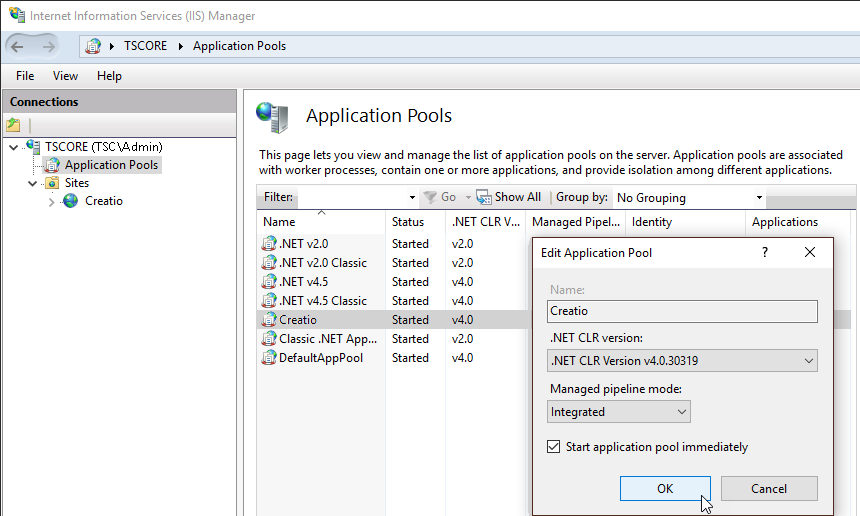
5.Check if the specified ASP.Net version is allowed. To do this:
a.Go to the ISAPI and CGI Restrictions on the web-server level (Fig. 6).
Fig. 6 Opening ISAPI and CGI Restrictions
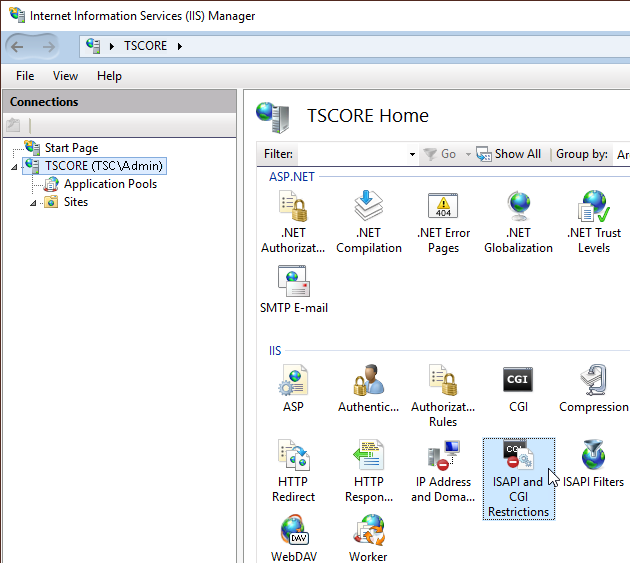
b.Make sure that the [Allowed] status is checked in the [Restriction] field for the used ASP.Net version (Fig. 7).
Fig. 7 Status check for the ASP.Net version used
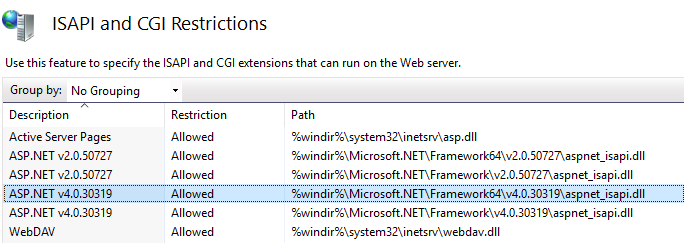
6.Make sure that all the required permissions are active. To do this:
a.Open the Handler Mappings on the server level (Fig. 8).
Fig. 8 Opening the Handler Mappings
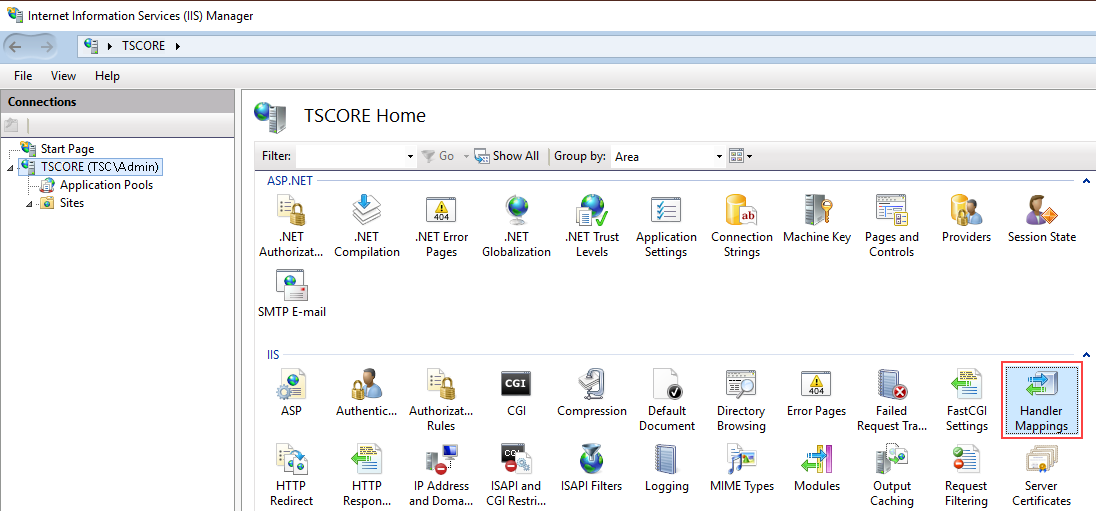
b.Select the [Edit Feature Permissions] action in the [Actions] area.
c.Make sure that all the required checkboxes are selected in the [Edit Feature Permissions] window (Fig. 9).
Fig. 9 Checking required parameters in the [Edit Feature Permissions] window
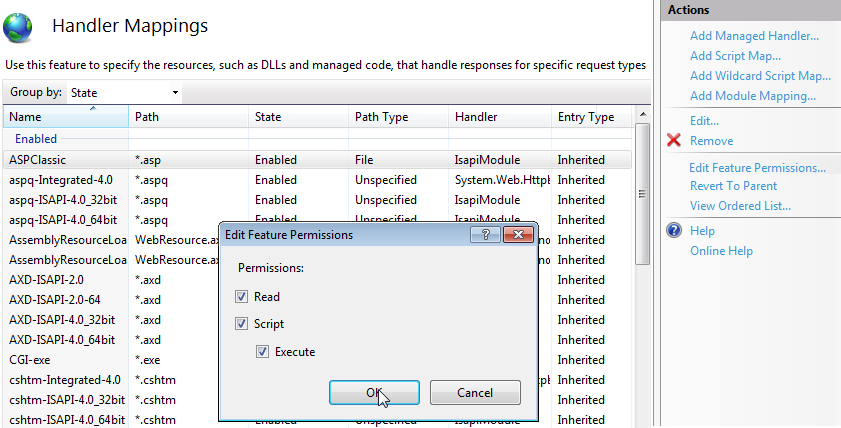
7.Make sure that MIME-type for the .svg files is configured in the new application. This configuration can be performed both on the level of the server (in this case it is inherited for all the applications located thereon) as well as on the level of the application. To verify:
a.Go to MIME Types on the server or application level (Fig. 10).
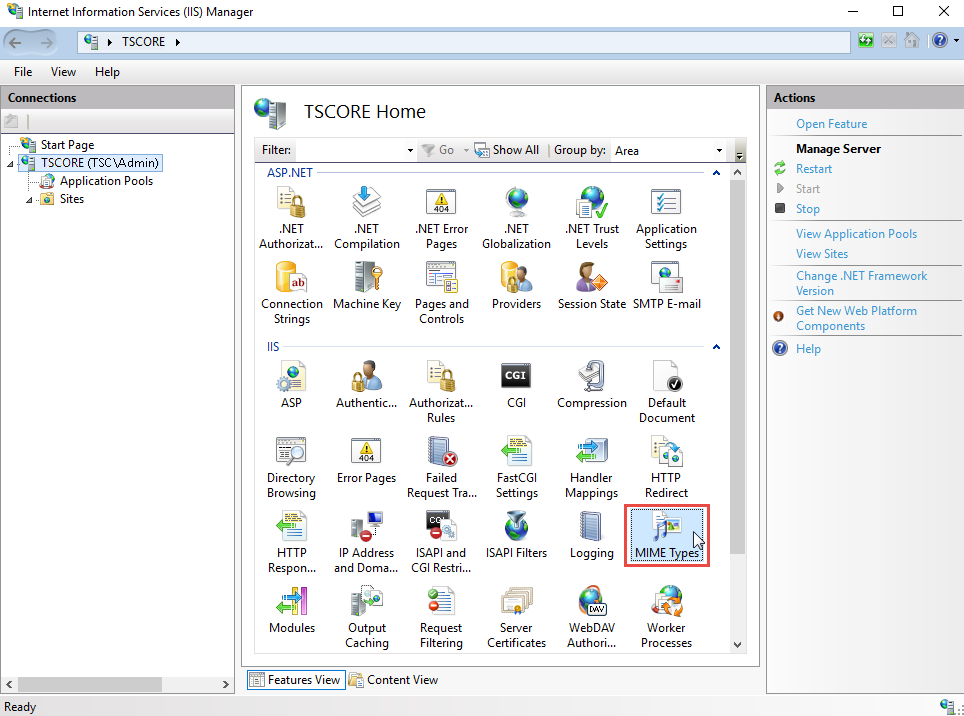
b.Make sure that configuration for .svg files is available. If the configuration is available, go to step 12.
c.If configuration is not available, click [Add] in the [Actions] area. In the opened window, specify .svg and MIME-type of the data that corresponds to this extension (Fig. 11).
Fig. 11 Configuring MIME-type of the data for .svg files
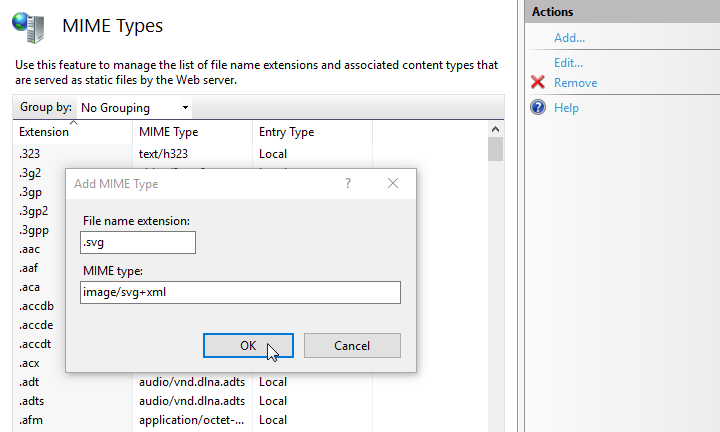
8.Restart the website with the [Restart] command on the [Manage Website] area (Fig. 12).
Fig. 12 [Restart] command at the [Manage Websites] area
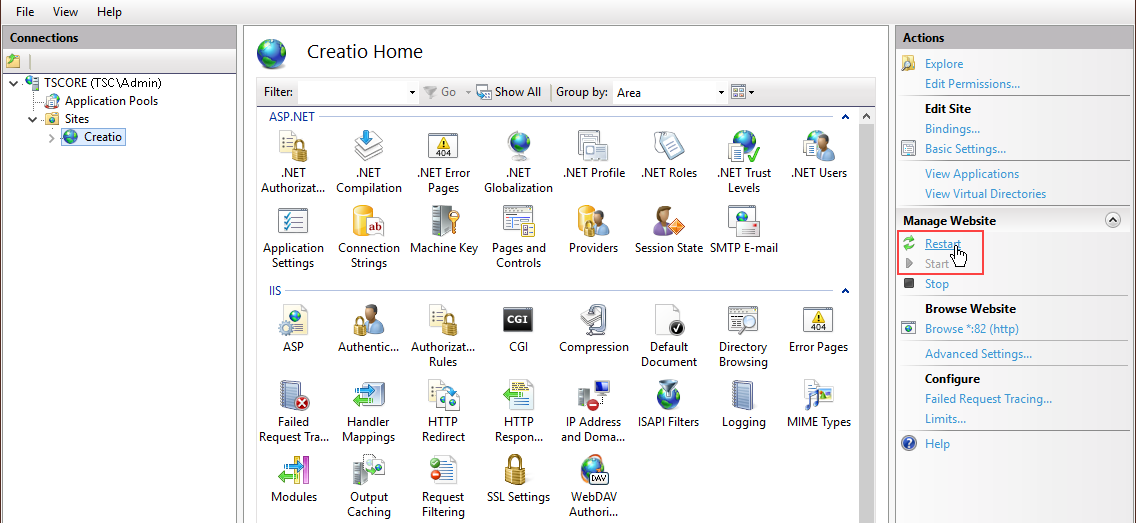
9.Open the site with the address or use the [Browse] command (Fig. 13). Make sure that the application authorization page is displayed.
Fig. 13 Selecting the [Browse] command in the website [Actions] area
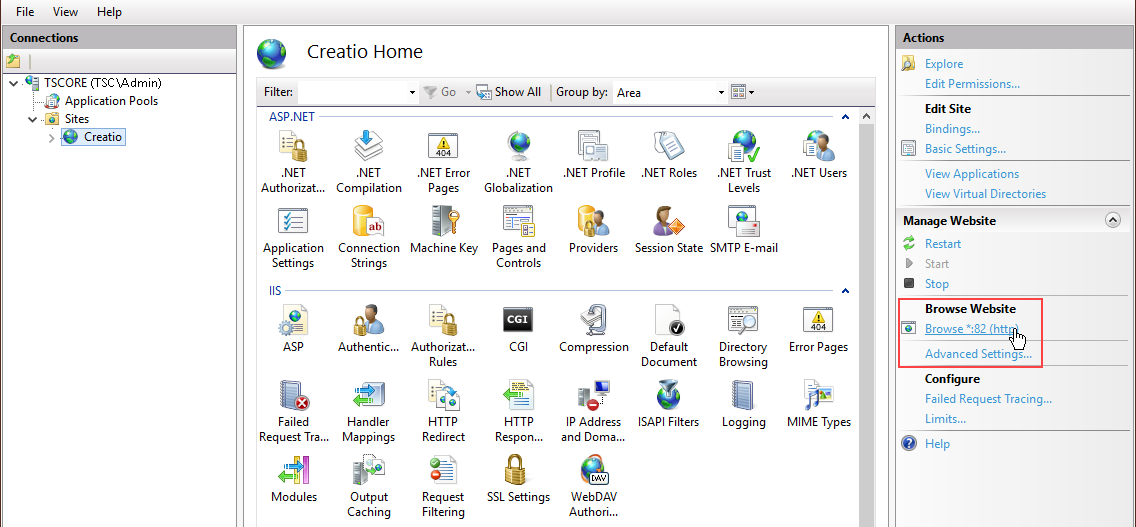
Note
To log in to a newly deployed application, use the default Supervisor user account. It is highly recommended to change the Supervisor password immediately. Login: Supervisor; Password: Supervisor.
10. To enable additional interface language:
a.Go to the [Languages] section in the system designer.
b.Select the needed language and click [Open].
c.Select the [Active] and [Use by default] checkboxes on the opened page. Save the changes.
To enable a language, the user who has run the IIS application pool needs to have access permissions to read, edit and delete application files and content subordinate catalogs (catalog .\Terrasoft.WebApp\conf).
11.In system designer, click [System settings] and change the [Order of first/last names] system setting value to “Last name, First name [Middle name]”. It is necessary to correctly display contact names per separate columns: [Last name], [First name], [Middle name].
See also






